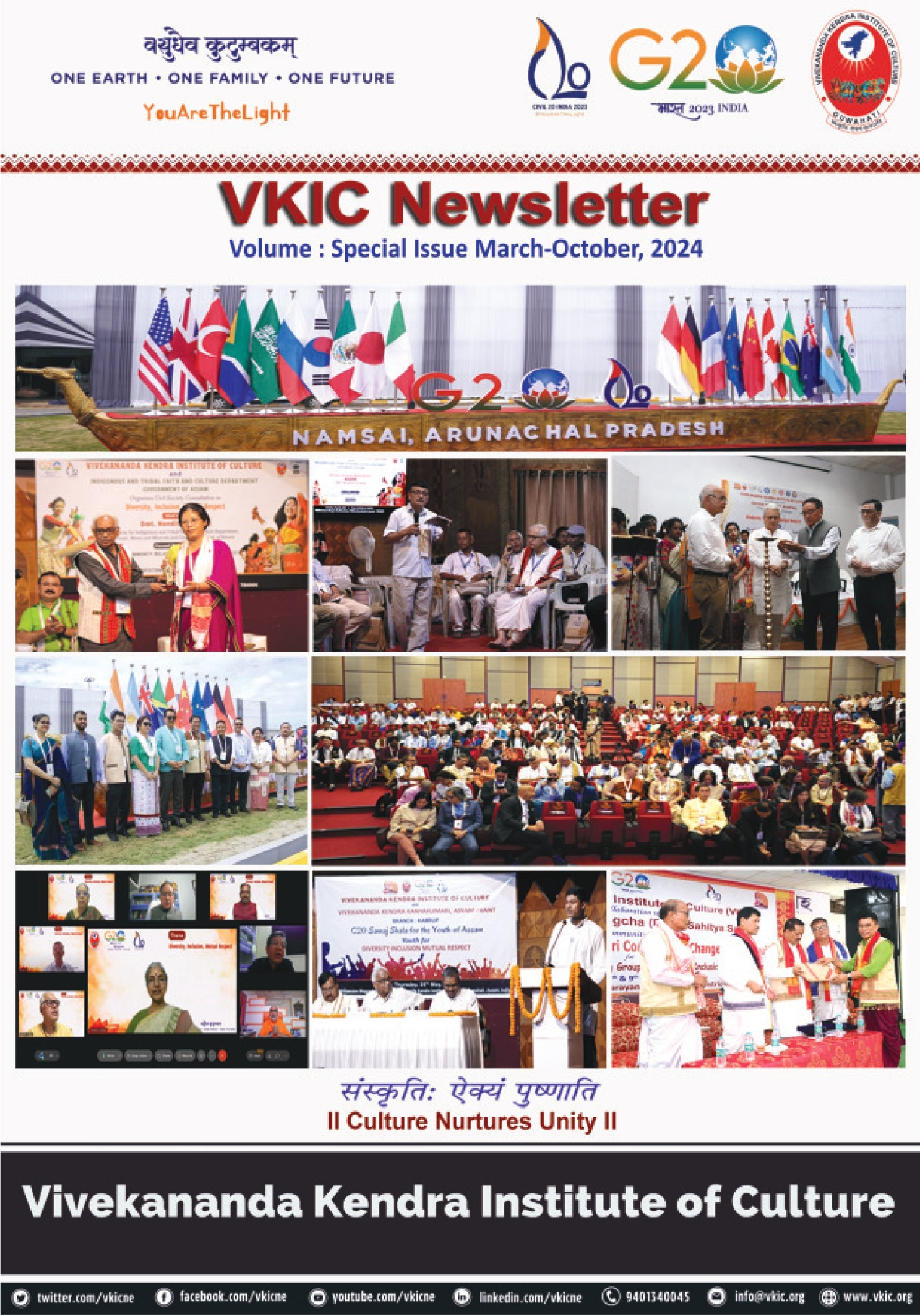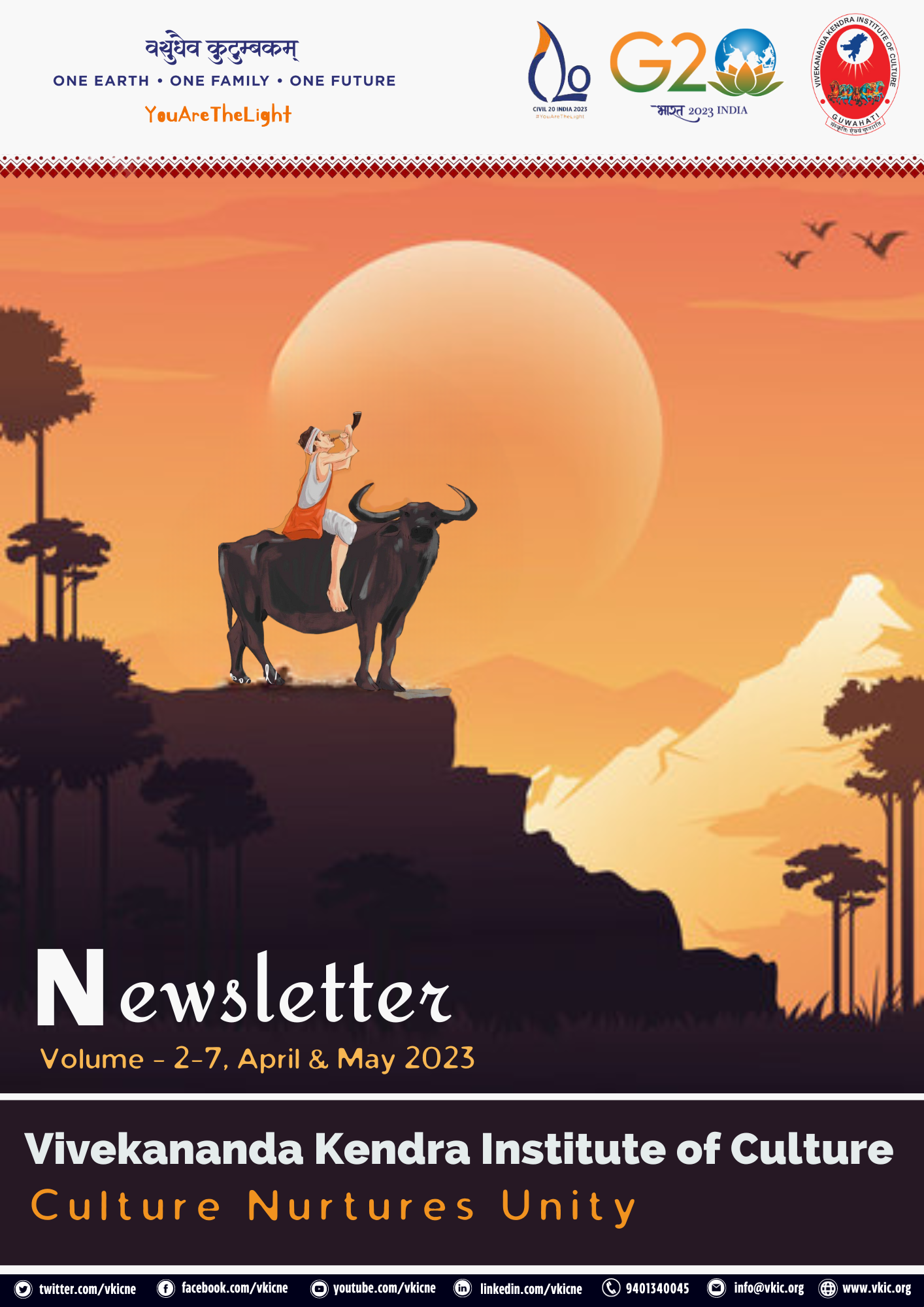Vivekananda Kendra Institute of Culture Celebrates 25 Years “Tejasvi Bharat”
Vivekananda Kendra Institute Of Culture solicits your gracious presence on the occasion of Foundation Day “Tejasvi Bharat”.Celebrating the completion of successful 25 Years journey in serving the Northeast Bharat of our motherland.
Sanskriti Anveshak: Bio-resources of NER: Sustainable Utilization for Entrepreneurship Dev
VKIC’s 25 Years Celebration with Vivek Murchhana
Wetlands of Assam - Past, Present & Future
As a part of Sanskriti Anveshak Lecture Series on land policy, Vivekananda Kendra Institute of Culture organizes a lecture on issues of wetlands on 9th October, 2010. Presented by Prof. A.K. Bhagabati of department of Geography, Gauhati University, the title of the lecture is Wetlands of Assam: past, present and future.
Invitation to contribute articles for ‘Quest’
Vivekananda Kendra Institute of Culture (VKIC) invites contributions for its bi-annual publication 'Quest’. Introduced and being published since 2008, VKIC plans to re-introduce ‘Quest’ in a new form in January 2025.
Traditional systems of the Jaintia community: Change and continuity
Vivekananda Kendra Institute of Culture Guwahati in collaboration with Seinraij Jowai organised a seminar entitled “Traditional systems of the Jaintia community: Change and continuity” held on 17th and 18th December 2018 in Jowai, Meghalaya.
Thirty Three Koti Divinities
A popular but unfounded belief has been spread that Hindus have thirty-three crore (33,00,00,000) gods. It is a misunderstanding of the Vedic concept of the State, and hence a misinterpretation of the word koti. Thirty-three divinities are mentioned in the Yajur-Veda, Atharva Veda, áatapatha-Brāhmana and in other Vedic and later texts. The number thirty-three occurs with reference to divinities in the Parsi scriptures of Avesta as well.
Marriage Rituals and Customs in the Jain Community
In Jaina tradition, as in all Indian communities, marriage is a community event as not only two individuals, but two families are united. Until, and sometimes after, marriage, children generally live with their parents, and it is the parents’ responsibility to introduce them [perhaps with the help of suitable intermediaries] to prospective marriage partners. It is quite misleading to refer to this as arranged marriage – in practice, the couple has every opportunity over a long period to get to know each other, and the decision to marry belongs to them alone.
Reflection of the Rāmāyana in the Marriage Songs of Assam, Bengal and Orissa
The epic tradition of India upholds an ideal tradition of Indian culture, assimilating the folk culture in it. India is a country of different communities, languages and cultural groups. Inspite of all the diversities it has a basic cultural unity. This unity is cemented firmly by the great epics like the Rāmāyana and the Mahābhārata. The Rāmāya¸a remains a perennial source of social functions on the cultural life of India.


